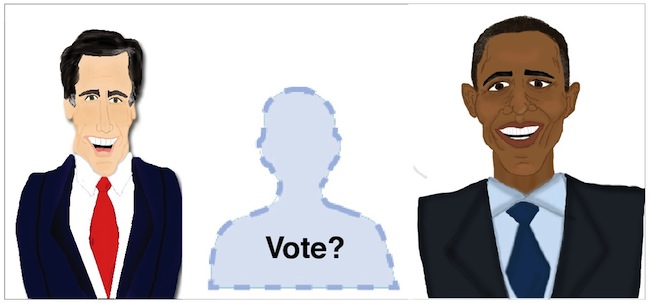Students missing from political discussion
For those interested in politics, every four years, it “that time” again. The new presidential election season is gearing up, the Republican Party presidential primaries have been initiated, and political parties are preparing for the big date in November. Despite the national attention to the election, AHS students are mostly uninterested.
Students with a great enthusiasm for politics join the Young Democrats and Young Republican clubs, but this year even they seem to be struggling. Young Republicans was formed so that conservative students could meet and help advertise for an upcoming election, but second quarter has almost ended and the club has yet to be fully organized. Club officers have not been elected either, and members have been struggling to choose a viable Republican candidate to endorse.
“They’re just divided,” Young Republicans sponsor and Government teacher Fred Zuniga said. “When we had our first meeting, we had a few kids, maybe two or three who liked Romney, but the others didn’t. Two or three liked Gingrich, but the others didn’t. They want a perfect candidate, someone who appeals to every one’s interests, but there isn’t one, and that is why they are divided.”
But division is not the only issue lowering enthusiasm about these clubs. The media was willing to begin coverage in February of last year, but for many students, the timing is too early. The new year and the Republican Party primaries have only begun and neither party will have a nominee officially announced until the conventions take place in late August and early September.
“This year is an off year, but when September starts the Young Republicans can start up,” Zuniga said. “Every other year is a curse.”
But student’s apathy is not just a result of the date. Some students simply do not care, while other’s find the political process hard to follow and that they have little knowledge on the issues.
“I’m not interested because the issues are too complicated,” sophomore Joselin Hoyos said.
As junior Luisa Olivo sees it, students are also involved in time consuming school work and other extra-curricular activities instead of paying close attention to the election.
“I don’t have the time [to follow politics],” Olivo said.
Zuniga, however is more hopeful for the future. “These kids are all worried about their college essays and applications,” Zuniga said. “Don’t be down because these kids aren’t engaged. They’ll get engaged, it just takes time.”
Many students also feel that some of the issues don’t concern them. Most may not be old enough to vote in the next election.
Other students are disillusioned with the political process, and the lack of unity in the government creates a harsh environment that dissuades some students from being involved.
“[Politics] are too dramatic and I don’t like the fighting between the political parties,” junior Alba Campos said. “They tell you they’re going to do something, and then they don’t; they’re liars.”
According to the presidential race survey recently distributed, 60 percent of students affiliated themselves more with the Democratic Party compared to 14 percent for the Republican Party. President Barack Obama is believed to be the clear candidate to win the primary for the Democratic Party. He is virtually running unopposed.The majority of the students who favor the Democratic Party do not have much to be involved in right now. With the Republican party, even though the process of the primaries is beginning, due to less support, student interest in this election is low.
The layout of this election so far compared to the 2008 election has possibly played a big part as well. The 2008 election is considered one of the most historic presidential elections of all time, where the nation could of potentially had the first African American or woman president.
“That election was really close and it was exciting,” Zuniga said. “Obama and Hiliary were so exciting. There’s no excitement now.”
Caucasus and primaries for the Republican Party have been held in states so far that may not pose any interest to the students. The Virginia primary may influence enthusiasm, but it will not take place until Mar. 6.
“I would just like kids to get involved, and to find out about their government and vote, because if you don’t then the participation is very low and it won’t be reflective of what we want,” Zuniga said. “Our government is only as good as its people.”







